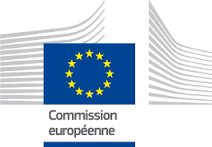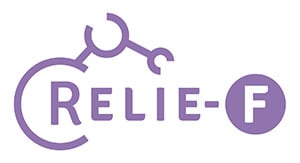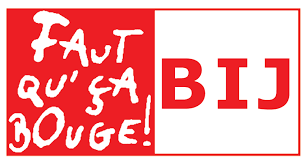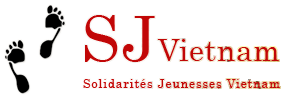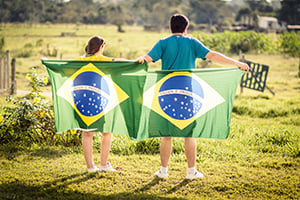The development of international volunteer projects, raising young people’s awareness about social and environmental issues, intercultural dialogue, solidarity, as well as the appeal for a better institutional recognition of volunteering are the main missions of the International Voluntary Service. The international volunteering sector, through the school of life, contributes to the development of young people’s personal skills in order to help them taking up their democratic responsibilities and become active and united citizens in civil society. Therefore, our association fights every day to further the cause of the volunteers, Belgians as well as foreigners.
Currently, there still are many grey areas where no specific rule for volunteering is referenced. Therefore, SVI is fighting for the creation of a fully-fledged, harmonised volunteer status in Europe. Such status would make it possible to resolve difficulties encountered by people wishing to volunteer internationally and would help them along their steps with the unemployment benefit, insurance, family allowances, retirement or social security systems.
Each organisation, private or public, in charge of these issues should therefore develop tools to support international volunteers, both Europeans carrying out projects in Europe or outside Europe, as well as non-Europeans who are interested to participate in the associative world within the European Union. This status would thus put an end to the difficulties and sometimes inconsistencies encountered by international volunteers and it would also promote their mobility. The caring of volunteering by a special status would also be a step towards our objective of creating a “volunteer visa” for people coming to volunteer in Europe.
Host associations in Belgium were faced, until January 2015, with the obligation for non-Europeans to obtain a work permit for a volunteer project. Each year, several non-European volunteers found themselves in a difficult position regarding the administration in charge of residence permits, and were therefore forced to leave early for their country. This situation affected not only the activity of the SVI, but also any organisation receiving non-European volunteers (political parties, trade unions, associations, etc.). For example, a convent of Belgian nuns inviting an Indian sister to help organize a spiritual retreat for her, was legally obliged to ask the administration for a work permit for her.
SVI therefore supported the implementation of the Royal Decree that makes the reception of non-European volunteers easier. So, we met all the Belgian democratic political parties in order to explain this situation to them and ask them for their support from the Ministry of Employment.
Since January 2015, the project has been presented to the Advisory Council for the Employment of Workers and has been accepted. This situation has therefore progressed given that from now on, the work permit for non-Europeans is no longer mandatory to carry out a volunteer project in Belgium.
For several years now, a new lucrative sector has been emerging between the tourism sector and the international volunteer sector : the humanitarian tourism sector, also known as voluntourism. The players in this sector use traditional mass tourism methods under the guise of international volunteering in order to be able to monetize both the misery and distress of certain populations in difficulty, but also the willing and the guilt feeling of gullible tourists.
These companies use the vocabulary and image of the associative world which let them delude their clients about the benefits of the projects in which they will participate and reinforce the stereotypes between the North and the South. Indeed, the proposed projects are not adapted to the needs of local populations, but meet the fantasies of the volunteers (managing human rights problems, doing medical procedures, teaching alone in a classroom… without any training).
They turn developing countries into a large “amusement park” where good feelings rhyme with huge earnings. Humanitarian tourism is nothing more than a subtle form of “racism”, through which voluntourists act like the “white knight” who is going to save all the “poor children” in Africa, even if they have no specific qualifications. Voyeurism is the only thing those voluntourism companies sell!
They use the concept of “humanitarian mission” and turn it into goods. Volunteers often have to pay from € 1000 to € 3000, transport not included, for a 2-week volunteer project in a developing country. Meanwhile, the local host association only receives a small part of this amount.
These kinds of projects reinforce stereotypes and turn poverty into a tourist attraction. Volunteering projects are sold just like very expensive goods are.
Solidarity is no tourist attraction, and least of all is it a way to generate dividends for shareholders!
The Service Volontaire International is fiercely against such practices doing more harm than good to the supposed beneficiaries of the projects, and that take advantage of the lack of knowledge of young people full of good will.
Non-profit associations provide you with opportunities to get involved in international volunteering projects. You can benefit from their real experience and knowledge of international solidarity gained thanks to many peer-to-peer partnerships with actors on the ground, in developing as well as developed countries. We do not create projects, because we don’t know the needs of local communities. We receive projects from our local partners, and not the other way around.
If you wish to participate in international volunteering, go for associations: travel agencies have nothing to do with solidarity!
This is why we would like a real European debate for a better regulation of commercial voluntary activities. We wish to strengthen information and awareness among young people, associations, teachers, politicians, etc. regarding voluntourism. A discussion on the terms “volunteering” and “doing humanitarian work” would be a great step forward for young people and associations to stop the confusion between nonprofit and commercial volunteering.


